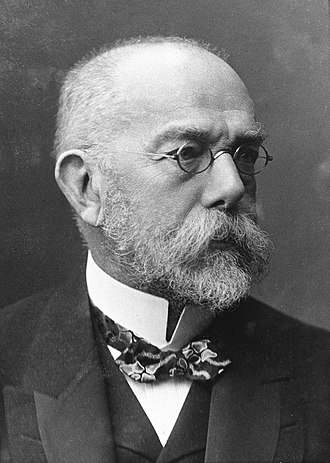The Nobel Prize in Physiology or Medicine 1905
Awarded on: 1905-10-12
"for his investigations and discoveries in relation to tuberculosis"
Affiliations:
- Institute for Infectious Diseases – Berlin, Germany

Born: 1843-12-11 in Clausthal (now Clausthal-Zellerfeld), Germany
Gender: male
Field: German physician and bacteriologist (1843–1910)
Heinrich Hermann Robert Koch was a German physician and microbiologist. As the discoverer of the specific causative agents of deadly infectious diseases including tuberculosis, cholera and anthrax, he is regarded as one of the main founders of modern bacteriology. As such he is popularly nicknamed the father of microbiology, and as the father of medical bacteriology. His discovery of the anthrax bacterium in 1876 is considered as the birth of modern bacteriology. Koch used his discoveries to establish that germs "could cause a specific disease" and directly provided proofs for the germ theory of diseases, therefore creating the scientific basis of public health, saving millions of lives. For his life's work Koch is seen as one of the founders of modern medicine.
Awarded on: 1905-10-12
"for his investigations and discoveries in relation to tuberculosis"
Affiliations: